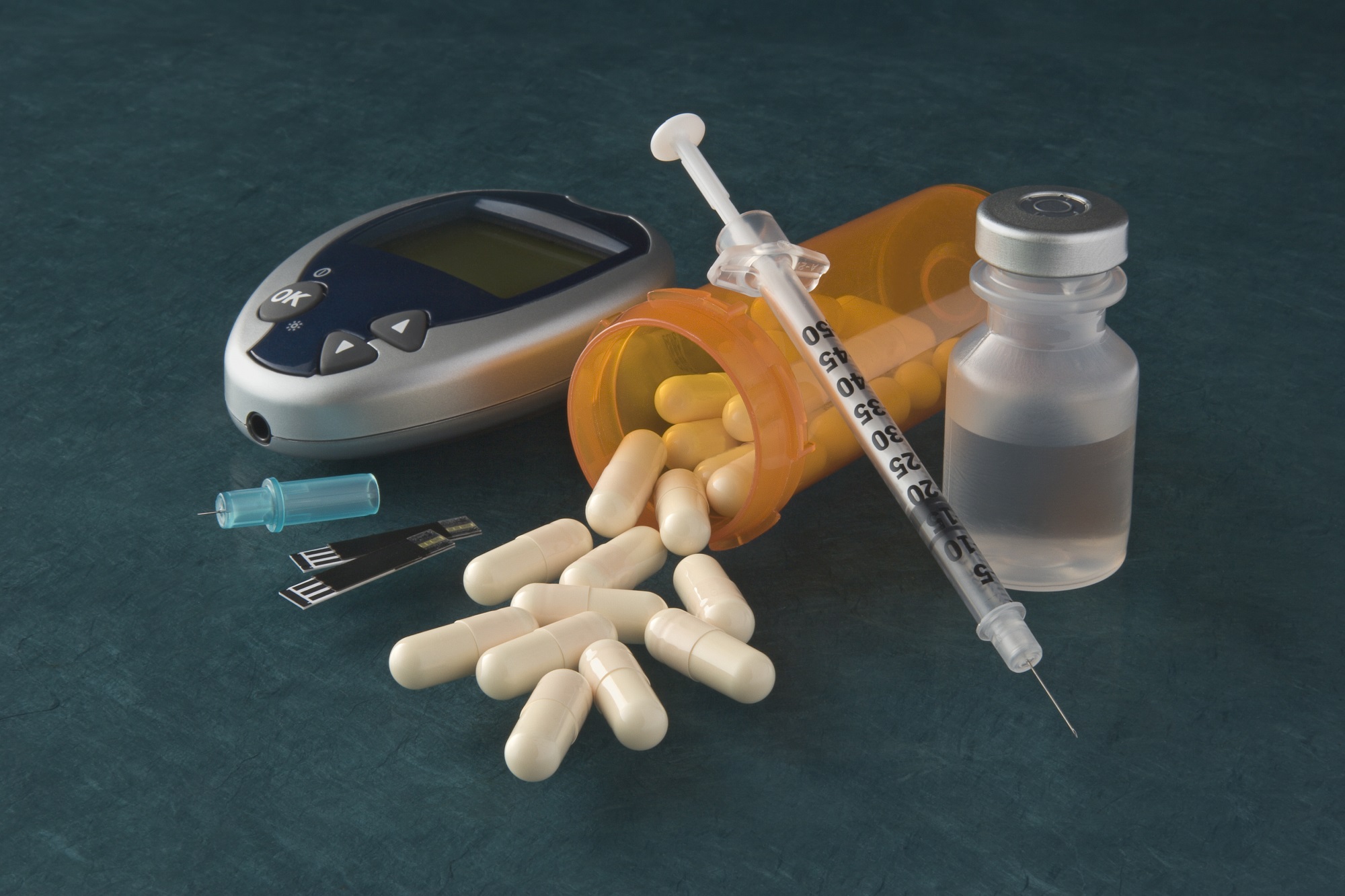Diabetes and obesity may have a significant effect on the severity of infection with severe acute respiratory syndrome coronavirus 2 (SARS-CoV-2), the cause of coronavirus disease 2019 (COVID-19). Furthermore, COVID-19 may affect treatment for patients with type 2 diabetes and necessitates re-evaluation of medications, according to a review published in Endocrine Reviews.
It is well known that diabetes is associated with increased risk for various infections and related adverse outcomes and previous studies have shown that SARS-CoV-2 hospitalizations are more common in patients with diabetes and obesity.
Pulmonary cells may express key proteins that facilitate the entry of coronavirus into cells, including angiotensin-converting enzyme 2 (ACE2) and dipeptidyl peptidase-4 (DPP-4), which are known to have pleiotropic metabolic activities directly contributing to the physiologic and pharmacologic control of cardiovascular and glucose homeostasis. Transmembrane protease serine 2 (TMPRSS2), a serine protease that is highly expressed within the lung and gastrointestinal tissues, is another potential key protein for coronarvirus entry and inflammation.
Continue Reading
When treating patients with type 2 diabetes who are infected with coronavirus, several factors should be noted:
Metformin, which exerts anti-inflammatory actions, was previously found to be useful in patients with stable hepatitis or HIV infections, but limited data are available on its effect in patients with COVID-19. It should be used with caution in unstable hospitalized patients and discontinued in the presence of sepsis or severe hepatic or renal dysfunction.
Inhibitors of DPP-4 are widely used to treat patients with type 2 diabetes, leading to 50% to 95% inhibition of DPP-4 activity over a 24-hour period. There are limited data on the effect of these medications on clinical outcomes in patients with COVID-19. Dose reduction should be considered in those with significant volume depletion or systemic sepsis and renal dysfunction. Previous studies have shown that these medications do not have a major effect on immune function or inflammatory cytokines in patients with or without type 2 diabetes and are not associated with increased risk for infections. According to several studies and a meta-analysis of multiple DPP-4 inhibitors to examine the safety of saxagliptin, alogliptin, sitagliptin, and linagliptin in humans with type 2 diabetes, these medications have no clinically relevant safety concerns related to infections, immune disorders, or inflammatory disorders.
Glucagon-like peptide-1 (GLP-1) receptor agonists, which have anti-inflammatory properties, have been shown to attenuate pulmonary inflammation, reduce cytokine production, preserve lung function, and reduce lung injury in animal models with experimental lung injury. GLP-1 receptor agonists have been investigated in the perioperative period and in the intensive care unit and have generally been proven safe and effective for blood glucose control. However, limited data are available on the safety of these agents for critically ill patients or patients with SARS-CoV-2 infection and exenatide-based formulations should be stopped in those with kidney dysfunction.
Insulin treatment has been the most extensively used treatment in patients with acute infection and in critically ill patients. In addition to glucose control, insulin was found to have anti-inflammatory properties and reduce inflammatory markers in hospitalized patients with critical illness. However, limited data are available on the potential benefits or risks of insulin in patients with acute SARS-CoV-2 infection.
Sulfonylureas, which increase the risk for hypoglycemia, should be avoided in patients with severe illness. In a similar fashion, because of the increased risk for volume depletion and euglycemic ketoacidosis, sodium-glucose cotransporter 2 (SGLT2) inhibitors should be routinely discontinued in unstable patients with severe SARS-CoV-2 upon admission.
Of note, patients with type 1 diabetes are not considered to be at an increased risk for SARS-CoV-2 infection. However, the interruption of normal daily activities and limited access to healthcare providers may have a significant effect on disease management and some individuals with complications should still be seen in diabetes clinics for assessment and appropriate therapy.
“The rapid flow of new clinical information stemming from the SARS-CoV-2 epidemic requires ongoing scrutiny to understand the prudent use, risks and benefits of individual glucose-lowering agents and related medications commonly used in subjects with diabetes at risk of, or hospitalized with coronavirus-related infections,” wrote Daniel J. Drucker, MD, professor of medicine and senior investigator at the Lunenfeld-Tanenbaum Research Institute at Mount Sinai Hospital in Toronto, Ontario, who authored the review.
Reference
Drucker DJ. Coronavirus infections and type 2 diabetes-shared pathways with therapeutic implications [published online April 15, 2020]. Endocr Rev. doi:10.1210/endrev/bnaa011
This article originally appeared on Endocrinology Advisor
this content first appear on medical bag

